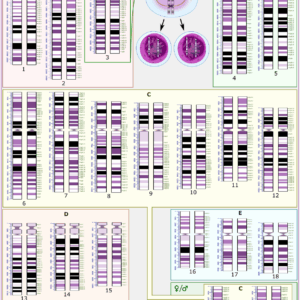Introduction
Recent years have seen a surge of research exploring the connections between psychiatric diseases and the immune system. While psychiatric disorders like depression, bipolar disorder, and schizophrenia have classically been understood through neurochemical and psychosocial models, emerging evidence suggests that immune dysregulation, including autoimmunity and neuroinflammation, may play a significant etiological role.
Epidemiology and Bidirectional Risk
Robust epidemiological studies and meta-analyses confirm a significant association between psychiatric conditions and autoimmune diseases. For example, depression and post-traumatic stress disorder (PTSD) are linked to an increased risk of autoimmune diseases such as systemic lupus erythematosus (SLE), rheumatoid arthritis (RA), multiple sclerosis (MS), and inflammatory bowel disease (IBD). Conversely, patients with autoimmune diseases, including autoimmune arthritides and alopecia areata, show a higher incidence of psychiatric comorbidities.
Mechanistic Insights: Neuroinflammation and Autoimmunity
Neuroinflammation now appears central in the pathogenesis of many psychiatric diagnoses. Key mechanisms proposed include:
- Activation of glial cells and production of pro-inflammatory cytokines (e.g., IL-6)
- Blood–brain barrier disruption
- Dysregulation of the HPA axis
- Autoantibody production targeting neuronal antigens
Research has identified specific synaptic autoimmune encephalitides, where psychiatric symptoms dominate the clinical presentation. Large-scale genetic studies also reveal shared genetic risk loci for autoimmunity and psychiatric diseases.
Clinical Implications and Future Directions
This emerging knowledge base has profound diagnostic and therapeutic implications:
- Screening for autoimmune markers in select psychiatric presentations, particularly with atypical course or treatment resistance.
- Considering anti-inflammatory or immunomodulatory therapies as adjuncts in some psychiatric conditions.
- Promoting multidisciplinary care among psychiatry, neurology, and immunology.
Despite these advances, most psychiatric disorders are not currently classified as autoimmune diseases per se. However, a subset may be strongly driven by immune dysregulation, leading to the evolving field of “immunopsychiatry.” Ongoing research is needed to refine diagnostics and develop personalized therapy.
Key Recent References (2023–2025):
- Li Y et al. “Depression and risk of autoimmune disease: a systematic review and meta-analysis.” 2024.
- Mandagere K et al. “Systematic review and meta-analysis of post-traumatic stress disorder as a risk factor for multiple autoimmune diseases.” Front Psychiatry. 2025.
- Cătălina GR. “The Role of Neuroinflammation in the Comorbidity of Psychiatric and Internal Diseases.” 2025.
- Sălcudean A et al. “Neuroinflammation—A Crucial Factor in the Pathogenesis and Progression of Mood Disorders.” 2025.
- Mostaghimi A et al. “Immune-Mediated and Psychiatric Comorbidities Among Patients With Alopecia Areata.” 2024.
- Liwayiding A et al. “Unveiling genetic and biological links between psychiatric and autoimmune diseases.” 2025.
- Jeppesen R, Benros ME. “Autoimmune Diseases and Psychotic Disorders: Epidemiology, Mechanisms and Future Directions.” 2019.
- Kayser MS, Dalmau J. “The Emerging Link Between Autoimmune Disorders and Neuropsychiatric Disease.” 2010.
The relationship between autoimmunity and psychiatric disease is complex and multifaceted. While not all psychiatric illnesses are autoimmune in origin, immune contributions—especially neuroinflammation and autoantibody involvement—are increasingly recognized as fundamental in a subset of cases.
Summary of the key evidence on the relationship between psychiatry and autoimmunity
Recent studies indicate a robust association between psychiatric disorders—such as depression, schizophrenia, bipolar disorder, and PTSD—and autoimmune diseases, including lupus, rheumatoid arthritis, and multiple sclerosis. Individuals with autoimmune diseases are at higher risk for psychiatric symptoms, while people with certain psychiatric illnesses also have increased rates of autoimmunity. The underlying mechanisms involve neuroinflammation, glial cell activation, increased production of pro-inflammatory cytokines, and autoantibodies directed against neuronal targets. Large-scale epidemiological and genetic studies have revealed shared risk loci and bidirectional associations between psychiatric and autoimmune conditions. Some autoimmune encephalitis subtypes can present predominantly with psychiatric symptoms, underscoring the importance of recognizing immune-mediated contributors in clinical assessments. While not all psychiatric disorders are autoimmune in origin, immune dysfunction and chronic inflammation are increasingly recognized as significant factors in the pathophysiology and potential treatment of several mental health conditions.
References:
- https://pmc.ncbi.nlm.nih.gov/articles/PMC8369283/
- https://bmjgroup.com/autoimmune-disease-linked-to-doubling-in-depression-anxiety-bipolar-risks/
- https://mentalhealth.bmj.com/content/28/1/e301706
- https://www.nature.com/articles/s41398-024-02778-2
- https://www.frontiersin.org/journals/psychiatry/articles/10.3389/fpsyt.2019.00131/full
- https://www.sciencedirect.com/science/article/abs/pii/S1568997225001144
- https://onlinelibrary.wiley.com/doi/10.1111/imm.12795
- https://academic.oup.com/book/31766/chapter/265799140
- https://pmc.ncbi.nlm.nih.gov/articles/PMC6097895/
- https://mentalhealth.bmj.com/content/28/1/e301506



